Activision Blizzard, Rough Launches, And NFTs: MMOBomb's Top Multiplayer Gaming News Of 2021
A few rays of light in an otherwise dreary year.
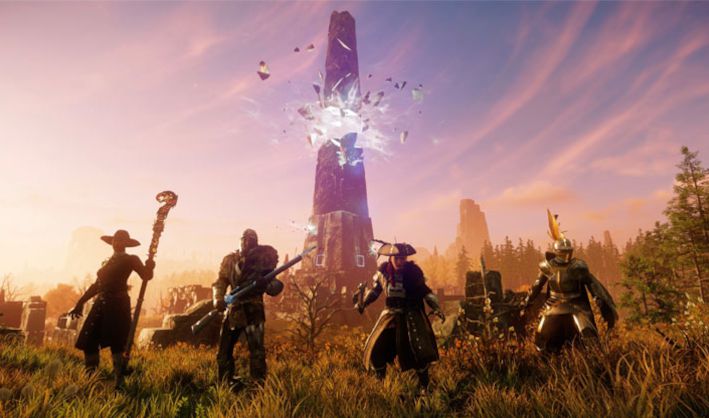
It's time once again to look back on another year of news in the gaming world – only this time we've got a bit of a twist in our regular feature here at MMOBomb. As you're probably aware, in August we shifted the focus of our site from covering exclusively free-to-play games to covering all multiplayer games. That means that this year's entries have a few entries that we wouldn't have tapped for stories last year, and we might be a bit light on coverage of things that happened before our shift. Next year, at least, should be a little less confusing.
Still, we don't think anything on this list should be too much of a surprise for its inclusion – and hopefully, we didn't miss anything in the multiplayer gaming world that you consider too egregious of an omission.
As always, leave a comment if you think anything else should be a part of the biggest multiplayer gaming stories of 2021!
10. Battlefield 2042 fires blanks
Get used to this kind of entry on the list – that of a major game that was hyped to the moon and then fell flat upon launch. Leading us off is Battlefield 2042, one of the tentpole shooter franchises to launch late in the year. While Halo Infinite has been fairly well received and Call of Duty: Vanguard just sort of "happened," BF2042 has been pilloried from all angles, receiving by far the worst reception of the three.
Every outlet we can find reports subpar review scores for the game: 34% positive on Steam, 2.3/5 on Xbox Series X|S, and user scores ranging from 1.4 to 2.9 on Metacritic, depending on platform. Most complaints revolve around the quality given the price (especially for the special editions), map design, and the new operator system that does away with the game's familiar classes.
And then there are the bugs -- there are so many that DICE had to do a hotfix to correct 150 of them. You can applaud a company for taking such swift action, but the fact that so many were allowed to sneak into the “launched” version of the game, even after open beta testing, isn't a good sign and might be enough to relegate 2042 to the bottom tier of the Battlefield franchise.
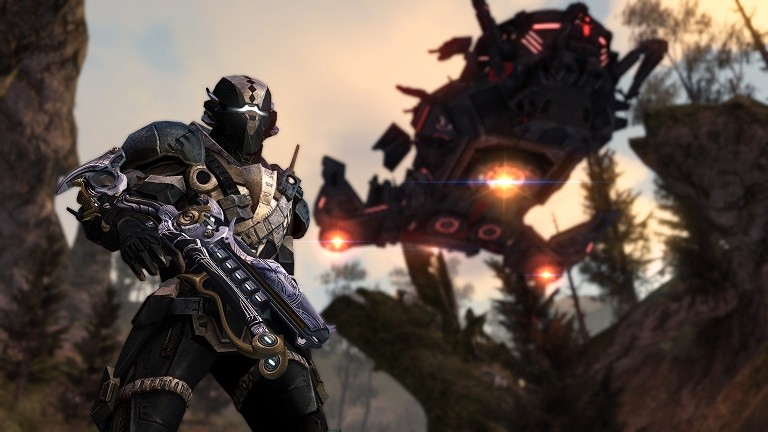
9. gamigo moves further from Trion, canceling Defiance and moving ArcheAge
In 2018, Trion Worlds was purchased by gamigo. At the time, Trion had five games under its banner: Rift, Trove, Defiance, Atlas Reactor, and ArcheAge. Now, three years later, only two of those games remain.
Atlas Reactor didn't even make it a year under the gamigo banner, shutting down in 2019; for some reason, though, it got a single-player sequel, Atlas Rogues, which performed about as well as the original – in other words, poorly. Defiance, and its underwhelming offshoot, Defiance 2050, were shut down in March (but not before gamigo co-opted its Twitter account to shill for everything else it offered). And ArcheAge was recently handed off to Kakao Games; we wonder if the XLGames CEO was informed this time.
Rift has been floundering, due in large part to not seeing a new content update in years. That's all supposed to change early next year, but it might be a case of too little, too late. If that update doesn't light a fire under the game, don't be surprised if, by this time next year, Trove is the only game with a speck of Trion DNA left.
8. RuneScape celebrates 20 years, endures major server outage
All right, how about some (mostly) good news? RuneScape celebrated its two-decade anniversary this year, and Jagex spent all of 2021 celebrating the game and its players with one special activity after another. From time-traveling quests to party hats (and more party hats!) to a mobile launch and even an illustrated book detailing the history of the game (and another three-book set by a dedicated fan, made with Jagex's blessing), 2021 could have been labeled the “Year of RuneScape.” At the very least, Jagex set the standard for how game companies should commemorate their major milestones.
It wasn't all good in Gielinor, however. In March, the game suffered what CEO Phil Mansell called “the first time in 20 years we've had an issue we couldn't recover from in a few hours.” About three hours of progress was rolled back, and some players were locked out from their accounts for weeks. Everything was eventually resolved, and significant compensation was handed out to those who were most severely affected. With luck, RuneScape won't have a problem like this again for another 20 years.
7. That Lord of the Rings MMO is canceled
I didn't mention the company's name in the header for this one because I'm not sure who really “owned” this game when it finally suffered its untimely demise. We first heard that Athlon Games (company #1), a division of Leyou Technologies (company #2) was working on a "free-to-play massively multiplayer online video game based on The Lord of the Rings" in 2018. We had no details other than that, but given how long in the tooth The Lord of the Rings Online was getting, it was enough to get Tolkien-heads like me stoked.
In July of 2019, it was reported that Amazon Games (company #3) would be co-developing the game – a natural fit, given the Lord of the Rings series that Amazon was working on. Things got a little murkier, however, in December of last year when Tencent (company #4) purchased Leyou for $1.3 billion. The question on everyone's mind was: Could these two mega-corporations work together to deliver a game based on the most well-known fantasy IP?
The answer, it turned out, was “no.” We learned about the project's canning in April, though word is that it was actually put in the shelf shortly after the Tencent acquisition. In fact, Tencent reportedly has “little interest” in anything Leyou does, or did, in the video game realm. Maybe they were just interested in Leyou's poultry-supplier business.
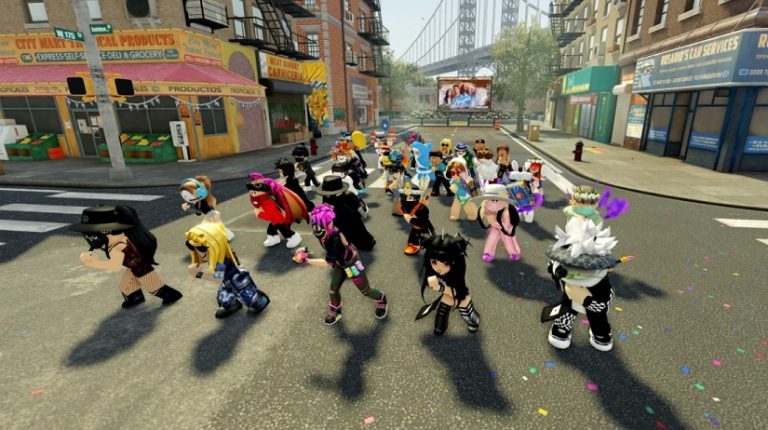
6. Roblox gets huge, but at what cost?
A lot of game developers did surprisingly well during the pandemic, but none more so than Roblox. The company's value skyrocketed from $4 billion to $29.5 billion in 2020, a figure that rose to $45 billion when it went public in March. You'd think that making all that money hand over fist is good, right?
Perhaps we should have seen this coming, but when someone makes that much money, that fast, it's almost a certainty that someone else is getting screwed. In this case, that appears to be the creators on Roblox – i.e., the ones actually making the content that brings in the money. A pair of scathing videos from YouTubers People Make Games laid bare Roblox's profit structure, which largely relies on children working long hours for pennies on the dollar, a system that would make 19th century coal barons jealous. At least Roblox's creators can't get black lung disease.
In the coming year, it's hard to imagine that Roblox won't face further scrutiny for the actions alleged in those videos, as well as from other sources. Then again, we've seen Electronic Arts dodge (and continue to dodge) regulatory bodies for its questionable monetization practices for years with the barest and most transparent of platitudes, so I wouldn't go so far as to predict that Roblox's empire will come crashing down in 2022. (Or maybe I will, since I have yet to write down my predictions for the coming year.)
5. Crypto and NFTs invade gaming
In terms of “bad things to happen in gaming in 2021,” this entry might be at the top of a lot of people's lists. Paradoxically, it might also be at the top of some people's list of “good things to happen in gaming in 2021.”
The first thing to remember is that video game companies are businesses – they want to make money. And one of the most tried-and-true ways to make money, especially when you don't have a lot to start with, is by hopping on a new and exciting-seeming trend when it's small and hope it pays off big in the long run.
That seems to be the case with gaming's new infatuation with alternate forms of currency and investment, something we first got wind of nearly four years ago with blockchain CCG Nova Blitz. Developer Dragon Foundry was a bit before its time, however, as 2021 was the year that gaming companies large (like Nexon and Ubisoft) and small (like this and this) embraced cryptocurrency and NFTs – hesitantly in some cases and fully in others.
The response to the trend from gamers, however, has been overwhelmingly negative. I'm almost convinced that some of those responses are the reason why YouTube removed public viewing of the number of dislikes videos received. Still, a lot of people think “owning” your own digital assets is the future of gaming, and while they might not be wrong, the question will be whether there's any true value in “owning” anything from games that a) were never popular; or b) shut down years ago; or c) both.
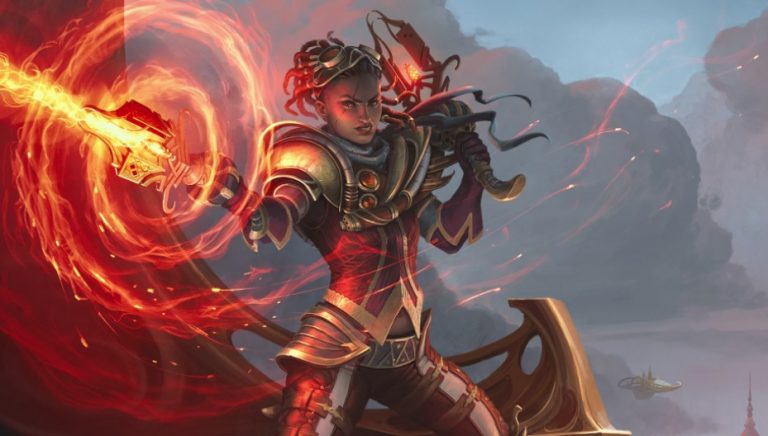
4. Magic: Legends “launches,” falls flat
“Missed the mark” is rapidly becoming one of the most tired phrases in business. It's usually trotted out as a euphamism for “We failed” but sounds a little less harsh and maybe makes the people involved with the project feel like they tried their best, but due to some random chance – a puff of wind knocking their arrow aside, perhaps – they just didn't quite hit the target.
Make no mistake, though – Magic: Legends failed. It failed harder than just about any other game in 2021, and it was entirely the fault of the people who designed it.
I won't blame Cryptic Studios for making it an ARPG, when nearly everyone was expecting a full MMORPG (which is an expectation gamers really need to let die), but nearly every design decision after that came with question marks. Most notable was the “random hand” mechanic, which I personally didn't find awful but also didn't find good – and a lot of folks were less generous than me. Progression systems were also obtuse or needlessly difficult, the tutorial area was too long, the cash shop (of course) was criticized – basically, there wasn't much anyone said they actually liked about the game.
All this led to, unsurprisingly, the death of the game, but it happened in a more rapid time frame than any of us could have expected. The shutdown was announced in June, just three months after the game became publicly available – ostensibly in “open beta” – because it “missed the mark” and, oh, by the way, didn't make enough money. In open beta.
It seems like gamers weren't the only ones with unrealistic expectations. But hey, at least you got some free stuff in other Cryptic/Perfect World games.
3. Apple and Epic keep fighting
I'm as tired of writing about this as you likely are of reading it, so here's the quick version:
Epic still doesn't want to pay Apple to use the App Store. As the case was heard, we found out a lot of interesting things about the money Fortnite makes. The judge ruled that the App Store has to allow devs to link out to alternate payment methods. Apple said, “That will take too long” and the judge disagreed but other judges didn't. Both companies are appealing the ruling.
Bottom line: Fortnite still isn't on the App Store and likely won't be for some time. We'll let you know when that changes, or anything else of value comes out of this whole affair, but that's not likely to happen any time soon.
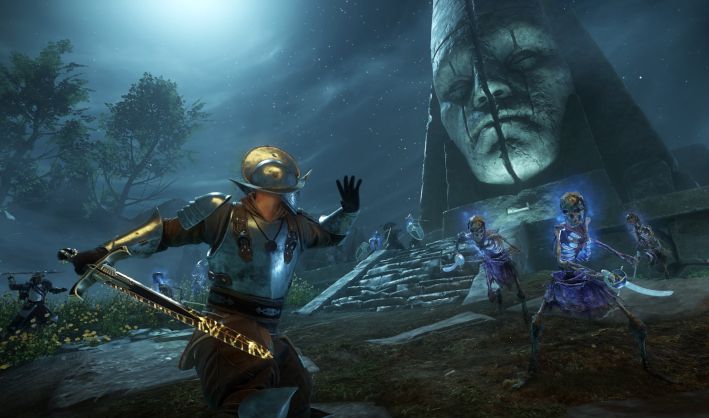
2. New World launches to great fanfare but bleeds players like a sieve
Maybe it wasn't quite as disastrous as the Magic: Legends saga, but the saga of New World's journey is nearly as depressing. And hey, three months after launch – full launch, mind you, not “open beta” – it doesn't seem to be in danger of shutting down!
That's about the only thing that hasn't gone wrong for Amazon Games' latest foray into the multiplayer gaming world. The first, Breakaway, never made it out of testing, while the second, Crucible, did, and then went back into testing and then was shut down. To say that New World had some high expectations – not only from fans but from Amazon itself – but also had a lot of question marks would be an understatement.
Early on, things seemed to be going rather smoothly, typical MMO launch-day woes aside. Yes, there were long queues, but nothing seasoned players weren't used to. Before long, though, bigger issues surfaced. Bugs were expected, even severe ones, but it was the exploits … and the exploits … and the exploits … and the exploits … and the exploits … that kept grabbing the headlines.
Even taking “unintended” gameplay out of the equation, there have been plenty of intentional design choices that have left players feeling miffed. My personal list includes not being able to do instanced PvP until you hit max level or participate in wars unless you're chosen to do so. And then there's all … the … running. Those were issues at launch, and even months later, the dev team continues to make decisions that irritate players, like this one that they thankfully decided to reverse course on.
There are some good points to the game, but the overall package adds up to a game that deservedly has a “Mixed” rating on Steam and has seen its average player count drop by about 75% since launch. That's still good enough to be a top-10 game, but given the game's tremendous development cost – rumored to be in the $500 million range – anything less than #1 has to be viewed as a disappointment by Amazon.
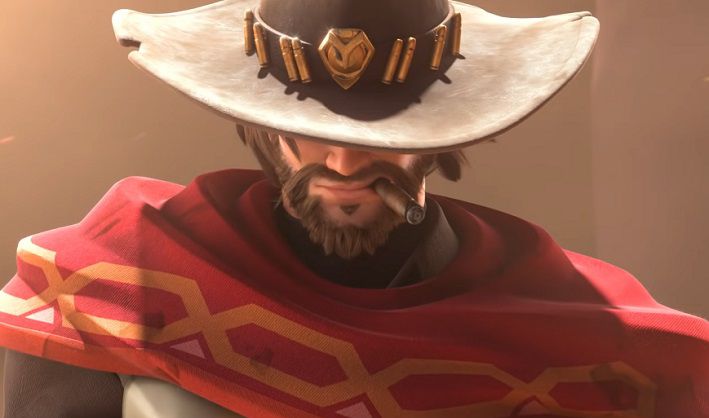
1. Activision Blizzard and Bobby Kotick slammed from multiple angles with serious harassment and discrimination allegations
Where to begin when describing Activision Blizzard's fall in 2021? Perhaps it's best to start before everything really went downhill, when CEO Bobby Kotick had to work overtime in June to ensure his exorbitant paycheck. Maybe the lack of faith that many investors had in him should have been seen as a sign of what was to come.
Just a month later, California's Department of Fair and Equal Housing filed a suit against the company, following a two-year investigation that found evidence of multiple cases of sexual harassment, discrimination, and more over the previous decade. Activision Blizzard immediately came out on the defensive, denying the substance of the report only to have multiple employees, current and former, come forward to corroborate its findings.
Things only went downhill from there, as the president of Blizzard, J. Allen Brack, fell on his sword and resigned his position, to be replaced by two people – one of them a woman, Jen Oneal, who herself resigned a few months later when she felt she was being treated unfairly. Toss in an investigation by the SEC, a controversial settlement with the EEOC, a bunch more unpleasant stories – including many painting Bobby Kotick himself as the perpetrator of harassment – and it's all added up to probably the worst year that anyone could have imagined for the company, its employees, and its fans.
In the wake of all that, Blizzard struggled with the content of its actual games, making major changes to World of Warcraft and Overwatch to either reduce overtly sexual content or remove named offenders. Hotly anticipated upcoming titles Diablo IV and Overwatch 2 were postponed until 2023, and BlizzCon was understandably canceled.
As for what all this means for the future of Activision, Blizzard, Bobby Kotick, and everyone else? Painful as it's been to endure, I'm optimistic that good, solid change will come of it all. Long-postponed attempts at unionization in the gaming industry are proceeding apace (despite Activision's obvious desire to squash them), and Kotick is facing serious pressure from a number of important people to resign. Whether he will or not is still an open question, and is tied heavily into the performance of the company's stock, but we've never seen anything quite like this in the gaming industry. I'd say that I'd prefer never to see it all again, but sometimes it's a necessary evil to endure so that things can get better in the long term.
Related Articles
About the Author

Jason Winter is a veteran gaming journalist, he brings a wide range of experience to MMOBomb, including two years with Beckett Media where he served as the editor of the leading gaming magazine Massive Online Gamer. He has also written professionally for several gaming websites.
More Stories by Jason WinterRead Next

Feature
Wargaming Finds Itself In Hot Water Following DMCA Takedown Of Toxic World Of Warships YouTuber
Russian content creator made offensive personal remarks directed toward WG staff.
You May Enjoy

Even “brutal dark fantasy” MMOs need a little holiday spirit.

The content update is already available to players.

Play in a reworked version of the House map at dusk.

The fourth installment introduces a “newly empowered ‘Spirit Lord Taros’, with the ability to distort space and time.
Discussion (0)